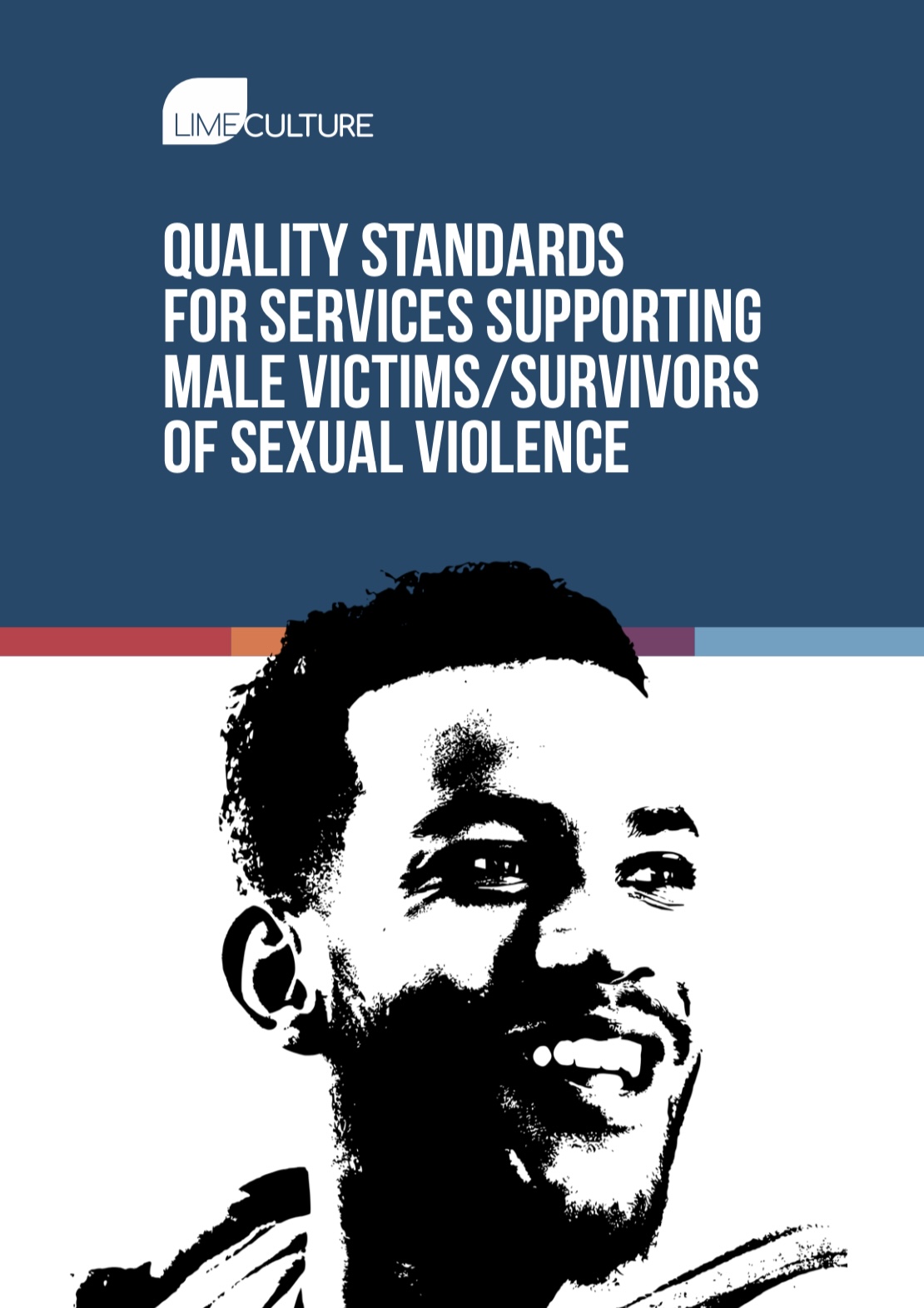The Male Service Standards, developed through the Male Survivors Partnership, is a quality assurance framework that enables organisations working with boys and men affected by sexual abuse, rape and sexual exploitation to benchmark their work against an independent evidence base and improve and evidence the quality of service provision to male survivors, in particular recognising their gender-based needs.

The Male Quality Standards
The quality standards are made up of the four separate domains:
1. Leadership and Governance
The service provider:
1.1 Is an incorporated legal entity and has a defined aim and objectives
1.2 Has a strategic plan, which focuses on long term sustainability of service delivery for its clients
1.3 Has policies and procedures in place specifically for supporting male clients
1.4 Has adequate financial controls in place to safeguard funds intended to support male clients
1.5 Ensures staff have appropriate experience, training and/or qualifications to support male clients
1.6 Demonstrates a culture of inclusivity with a visible male presence across the organisation
2. Access and Engagement
The service provide:
2.1 Utilises male-specific and culturally sensitive marketing for its services for male victims/survivors, reflecting the diversity of the community it supports
2.2 Has a strategy for engaging with marginalised and disadvantaged male victims/survivors in the community it supports
2.3 Ensures equitable access to all services and premises for all clients, regardless of gender or other protected characteristic
2.4 Ensures its premises are welcoming and accessible to all clients, regardless of gender or other protected characteristic
3. Service Delivery
The service provider:
3.1 Ensures leaders and staff understand how males response to trauma and have developed appropriate services to meet their needs
3.2 Empowers male clients to identify the services they need and adopts a flexible approach to engagement
3.3 Ensures staff can identify male clients in need of urgent support or those ‘in crisis’ and can manage risk accordingly
3.4 Adheres to all appropriate ethical and regulatory frameworks
3.5 Ensures all male clients can choose the gender of the professional(s) supporting them
3.6 Ensures that individual risk and needs assessments are carried out with all male clients
3.7 Ensures bespoke support plans are developed for all clients, based on their individual needs
3.8 Has established referral pathways to other services that may benefit its male clients
3.9 Is transparent about whether it supports perpetrators of sexual offences and has implemented policies to ensure client safety is maintained at all times
4. Outcomes and Evaluation
The service provider:
4.1 Has a process for encouraging feedback from male clients including those who chose not to proceed with support
4.2 Has a client consultative panel or user group that includes representation from its male clients
4.3 Identifies and monitors client outcomes
4.4 Collects and analyses outcome data to understand whether it is making a positive impact on the lives of its male clients
4.5 Reviews data, evaluation and feedback from male clients to develop new and innovative services
Apply for Accreditation
Your service can apply to be Male Service Standards Accredited through Limeculture’s independent accreditation process. They have industry-leading expertise in both developing and assessing service policy and practice that ensure the needs of male survivors of sexual violence are addressed. Each service is allocated to an Accreditation Manager who works closely with them through the accreditation process, providing support and guidance where needed to increase their readiness to meet the Quality Standards.
If you would be interested in learning more about the independent accreditation process please email: [email protected]
The team at LimeCulture have compiled a useful FAQ document answering a range of questions around the accreditation process including what it is, who can apply and what the process entails. Please check it out here: FAQs – Independent Accreditation Programme
History of the Male Quality Standards
In 2017, Lloyds Bank Foundation awarded the Male Survivors Partnership £85,000 to undertake a two year project to research, develop and produce a quality assurance framework to support the development of the sexual violence sector. The two year project would culminate with an independent accreditation programme and a number of organisations piloting the standards and accreditation process.
The Male Survivors Partnership commissioned LimeCultureCIC, the UK’s leading sexual violence training and development organisation to research, develop, and implement Quality Standards for services supporting male survivors of sexual violence, including an independent accreditation and monitoring process.
The standards were launched in the House of Lords, by Baroness Newlove, and supported by the Home Office, Ministry of Justice, NHS England and the Association of Police and Crime Commissioners.
Updating the Male Quality Standards
In February 2025, members of the Male Survivors Partnership agreed to work with LimeCulture to refresh the male Quality Standards to reflet developments in service delivery and evolving best practice.
On 5th June 2025, Lime Culture provided an update to members, including a proposed timeline for the refresh.
View the video presentation here, which includes a Q&A session at the end, or view the presentation slides here.
